[Focus on Eco Forum Global Guiyang 2021] Innovation of Ecological Civilization in Theories and Practice; Excerpts from Speeches at the Mayors' Forum on Green Development (Part 2)
On July 12, 2021, the Mayors' Forum on Green Development was held in Guiyang. In the second session of the forum, guests at home and abroad discussed on improving the modernization of the ecological environment governance system and capacity under the theme "Promote the innovation of ecological civilization theory and practice", in a bid to actively promote the transformation of low-carbon development, and provide suggestions for "scoring new achievements in ecological progress" in Guiyang, Guizhou. Meanwhile, their positive discussions also aimed to explore new means and paths for low-carbon development of green finance, promote the establishment of a green financial system, and enhance green development with green finance.
Zhang Yuyan, Director of the World Development Institute of the Chinese Academy of Social Sciences, Academician of the Chinese Academy of Sciences
"Ecological progress is indispensable for the 'Belt and Road' initiative"
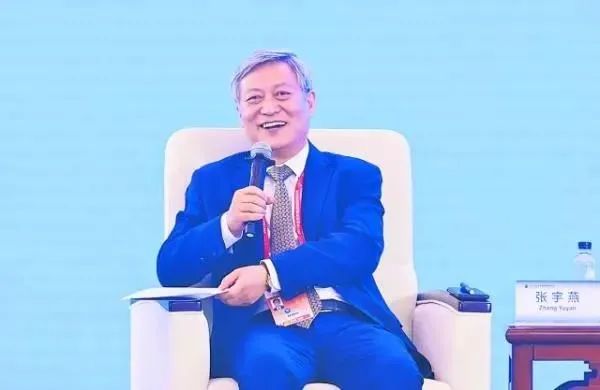
Zhang Yuyan
Based on my research field, I want to talk about the relationship between ecological environment and economic development. Empirically, all the countries have gone through four stages in economic development. In the first stage, they pursued high-speed economic development regardless of the ecological environment. In the second stage, they thought about some environmental problems and attempted to minimize the environmental impact while seeking high economic growth. In the third stage, they strived to achieve a higher economic growth while maintaining sound environment. In the fourth stage, which is now, all efforts are made to achieve rapid and sustainable economic growth amid the continuous improvement of our ecological environment. Of the above four stages, Guizhou has entered at least the third stage, and even some areas in the province started the construction in the fourth stage. I am increasingly aware that Guizhou is a microcosm of the achievements of ecological progress in China. Ecological progress plays an indispensable and important role in achieving high-quality construction and development under the "Belt and Road" Initiative. From the perspective of ecological progress, China must maintain and constantly improve the existing environment amid the economic cooperation with countries and regions along the "Belt and Road" and within the economic development. On this premise, we should seek economic development towards a higher quality and truly achieve the harmonious development of men and nature.
Huang Xianhai, Vice President of Zhejiang University
"China should enhance its competitiveness of new energy in the world."
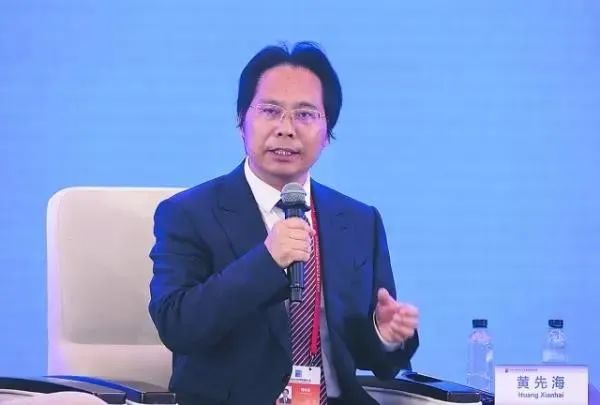
Huang Xianhai
Green development is a major industrial change and technological innovation. Against this backdrop, the original energy support system and industrial system based on fossil energy may face a significant restructuring. China ranks the top in production and consumption of fossil energy, but the development pattern dominated by fossil energy is far inconsistent with the goals for peak CO2 emissions and carbon neutrality. We are now very clear that China should take a new path of non-fossil energy. In this new system of non-fossil energy, the most typical energies are the light and wind energies. China has achieved leap-forward development in photovoltaic energy, with the competitiveness topping the world. In the future, China should strengthen the structural system of new energies represented by wind and light in order to achieve a revolutionary change. The technical problem facing us is how to effectively store light energy. For example, Zhejiang University has developed the methods to store light energy for 7 hours. If the storage time can be extended in the future, the substitution of this light energy for fossil energy will be more significant. For the development of new energy, China has its own development pattern, in which China's industrial policies played a very important role. For instance, the subsidy policies for the high-quality industries using light energy are beneficial for the development of industrial economy and market access. This is a very typical case. We can learn from it to further enhance China's competitiveness of new energy in the world.
Cheng Guoqiang, Former Director of the International Cooperation Bureau of the Development Research Center of the State Council, Distinguished Academics and Special-term Professor of Renmin University of China
"We should step up the construction of an economic system for green development."
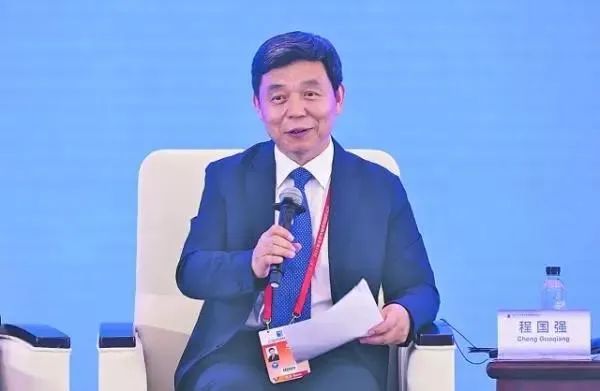
Cheng Guoqiang
Green development is of great importance in the whole process of China's modernization. China has applied the concept of ecological civilization into politics, economy, culture and social construction, and constantly promoted green development amid the new industrialization, new urbanization, informationization and agricultural modernization. Therefore, the central and local governments should build a green development mechanism and governance system, building a modern society that puts people first and features harmonious coexistence. To achieve these goals, we should step up an economic system for green development. It is necessary to speed up the transformation towards a green development mode, promote the green development of planning, design, investment, construction, production, circulation, life and consumption in an all-round way, and form a modern economic system featuring efficient utilization of resources, strict environmental protection, ecological priority and low-carbon cycle. Meanwhile, we should also build a green project information service platform and green science and technology innovation system, and strengthen international cooperation on green development. The world is now facing common challenges such as COVID-19, economic recovery, poverty eradication and climate change, and needs unity, cooperation and concerted efforts more than ever. In cooperation, we should avoid technical or product barriers in green and low-carbon development and reduce the imbalance and insufficiency in global development. As a scholar, I suggest that we should strengthen international cooperation in green development with high standards for people's livelihood and sustainable development, accelerate the promotion of the "Belt and Road" Initiative, build a solid foundation for green infrastructure, green energy, green transportation and green finance, and actively enhance the ability of developing countries to cope with climate change and green and low-carbon transformation, thereby contributing to global sustainable development.
Wang Zhen, President of CNOOC Energy Economy Research Institute
"There is a huge room for improving energy efficiency."
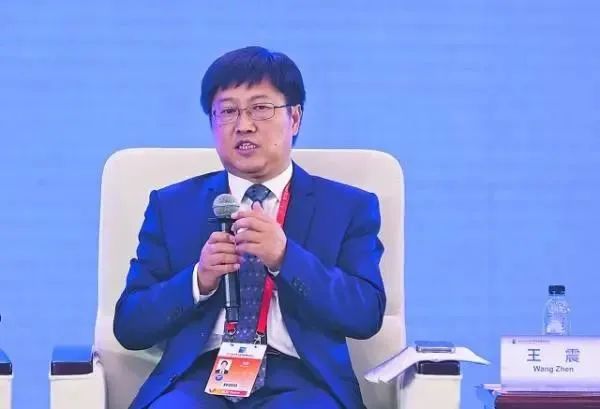
Wang Zhen
In my opinion, the biggest challenge facing China now is the peak in CO2 emissions. By 2030, China will lower its carbon dioxide emissions per unit of GDP by over 65 percent from the 2005 level. This is highly stressful for governments at all levels. In economics, we need properly handle the relation between emission reduction and development to make CO2 emissions not so high while still under certain intensity, and economy grow. Before the goal of peaking CO2 emissions is achieved, it is necessary to improve energy efficiency since there is a huge room for improving energy efficiency. In terms of production, it is important to improve energy structure, especially for manufacturers, which need to tap into the approaches to effectively transmit indirect emissions and drive green electricity transmitted to the terminals. To optimize industrial structure, we can think about how to control the cost of CO2 emissions from the perspective of investment. In green finance, the problem can be solved by economic or financial means. The goal of emission reduction can be achieved through investment, production and financing.
Martin Raiser, Work Bank's Country Director for China and Mongolia, and Director for Korea
"We should enhance cooperation to achieve the goal of emission reduction."
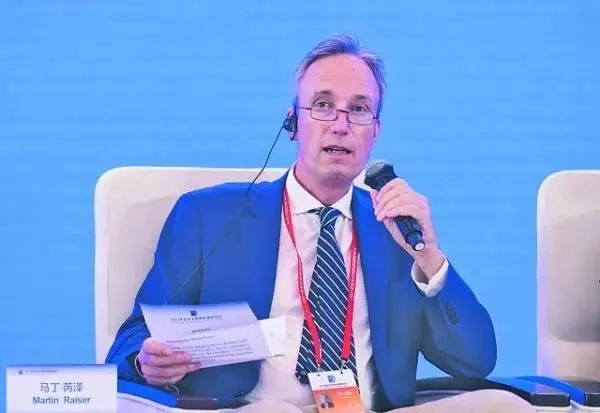
Martin Raiser
Cities are very important, and also face many challenges. A city needs to take scientific measures to complete a priority-oriented plan to achieve the goal of emission reduction. The most important is a proper plan to make emission reduction more cost-effective. Second, cooperation is very important for China to achieve its environmental protection goals. Cooperation needs banks, capital market, and also a monitoring and verification system. Banks and capital can help make key plans, tell cities to take actions and get better support from these financial institutions for innovation. This can help us achieve the goal of zero carbon. Finally, I want to say that all these actions require us to understand the consequences of environmental degradation. Speaking of climate change, we need to introduce the carbon tax, which can help municipal governments invest in better green infrastructures and stimulate the green policy.
Tamas Hajba, Senior Advisor, Beijing Liaison Office of Organization for Economic Co-operation and Development (OECD)
"It is necessary to establish a multinational collaborative platform to deal with climate change."
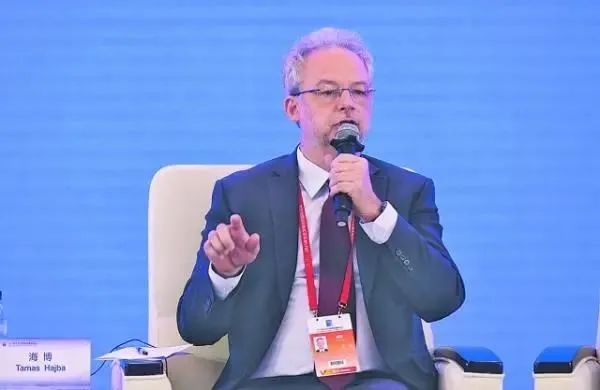
Tamas Hajba
Climate change may affect our living, and we will have some opportunities based on it, such as some projects and investments, but these are only short-term opportunities. China has developed a series of top-down policies to deal with climate change. Internationally, we need cooperation and coordinated development. More importantly, we must realize that the necessary policies, measures and goals are greatly helpful in dealing with climate change, which can be achieved by establishing a collaborative platform of multiple countries. Specifically, how to use our fiscal revenue is also very important. What proportion should be applied for ecological development and pollution prevention? Carbon dioxide mainly comes from cities, and 80% of the carbon emitted comes from the people in urban areas. To achieve the goal of zero carbon, some practical measures and policies must be taken, and the people must be guided to participate in relevant innovative activities. According to relevant studies, cities need a series of assessment standards to deal with the climate change. For this reason, there must be an effective strategy and favorable measures to help achieve the goals of peak CO2 emissions and carbon neutrality. China is a member of OECD. The cost of this task is about 1% to 2% of GDP, which means that, in order to achieve the goal of carbon neutrality, we must constantly implement measures and make efforts.
Shahbaz Khan, Representative of UNESCO Office Beijing
"Guiyang is a city of hope."
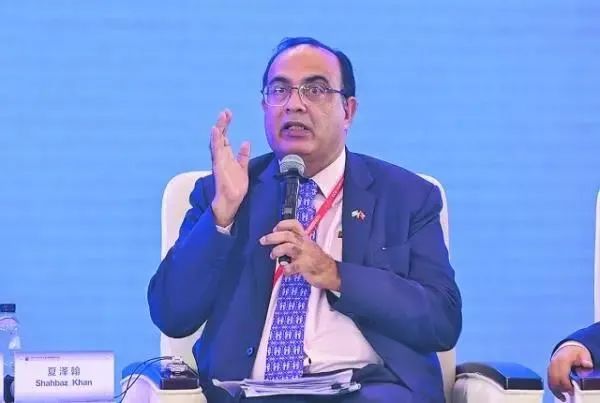
Shahbaz Khan
This is my second visit to Guiyang. Guiyang is a city of hope. We can create an example through which we can see how to better achieve ecological civilization and balanced development of ecological system. China is a great country. There are 55 World Heritage sites in China, including four in Guizhou. We have made great efforts in intangible cultural heritage, because intangible cultural heritage is closely related to culture and environment. Cities like Beijing, Shanghai, Nanjing and Guiyang are advantageous in art, culture and food. We can work with Guiyang, Guizhou to find solutions for achieving sustainable development goals. We have a global demonstration project. Since Guiyang has many vocational colleges, we will set up an online school here, which will involve intangible cultural heritage and others. In addition, we will promote eco-tourism development and realize a green lifestyle. Guiyang has many tourism resources and has made abundant achievements in eco-tourism, which is worth learning. We look forward to more cooperation opportunities with Guiyang in this regard in the future. Culture, education, science and technology may affect our future life. We also hope to have a better cooperation with Guiyang in these areas for the purpose of sustainable development.
Tang Jingchun, Professor at Nankai University
"We should promote the green development of cities with higher standards."
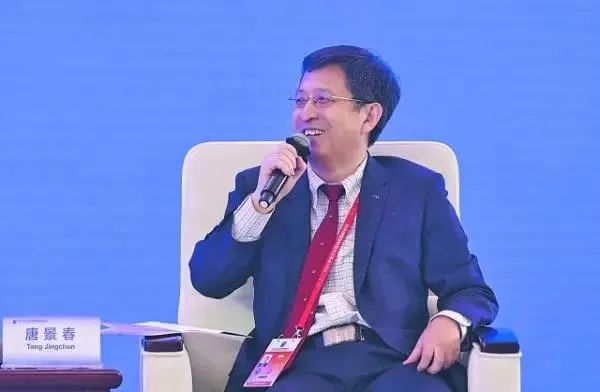
Tang Jingchun
The philosophy that "lucid waters and lush mountains are invaluable assets" provides us with powerful ideological guidance for creating gorgeous environment, building beautiful China, transforming the mode of economic development and developing China into a great modern socialist country for the new era. Therefore, it is our common responsibility to achieve ecological civilization. Ecological progress is not only a practice, but also a systematic task from thought to culture and inheritance. Guiyang, as a national ecological civilization city, has developed forward-looking policies on ecological progress, which embodies Guiyang's in-depth practice of Xi Jinping Thought on Ecological Civilization. It is hoped that Guiyang will bring peal CO2 emissions and carbon neutrality into the overall outline of ecological progress in the future, foster strengths and circumvent weaknesses, resolutely conserve energy and reduce emissions, effectively reduce CO2 emissions, and make use of forests, the largest ecological carbon sink, so as to promote green development of cities with higher standards. Excellent ecological environment is the greatest advantage of development and competitiveness for Guiyang. I hope that Guiyang would further exert its regional and resource advantages, such as forest, biology and karst landform, to constantly promote ecological progress in depth and for the greater good in the future.
Presented by China Daily.
黔ICP备05001922号-3